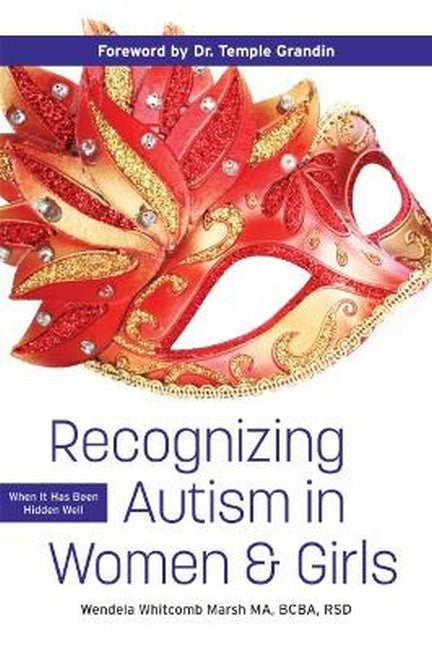Wendela Whitcomb Marsh is an award-winning author and autism assessment specialist. In addition to her newest book, Recognizing Autism in Women and Girls: When It Has Been Hidden Well, she has written The ABCs of Autism in the Classroom: Setting the Stage for Success for educators, and Independent Living with Autism: Your Roadmap to Success for autistic adults. She co-authored Homeschooling, Autism Style: Reset for Success with Siobhan Marsh, and Autism Parent Handbook: Start with the End Goal in Mind with Dr. Raun Melmed. People on the spectrum, especially women and others who struggle to be recognized, are among her favorite people. Dr. Marsh lives in Salem, Oregon, where she owns PIPS for Autism, LLC: Promoting Independence and Problem Solving.
Request Academic Copy
Please copy the ISBN for submitting review copy form
Description
Table of Contents Introduction: The Myth, The Mask, The Message PART I: SOCIAL COMMUNICATION AND INTERACTION Chapter One: RECIPROCITY...A Two-Way Street Chapter Two: NONVERBAL COMMUNICATION...You Don't Say Chapter Three: RELATIONSHIPS...It's Peopley Out There PART II: REPETITIVE PATTERNS Chapter Four: STEREOTYPED BEHAVIORS...If You're Happy and You Know It, Flap Your Hands Chapter Five: RIGIDITY...If It's Worth Doing, It's Worth Doing the Same Way Every Time Chapter Six: INTERESTS...If You Love Something, Never Let it Go Chapter Seven: SENSORY...If It Sounds Like a Duck, Wear Ear Plug PART III: ADDITIONAL CONSIDERATIONS Chapter Eight: DEVELOPMENTAL...Has ASD Always Been There? Chapter Nine: IMPAIRMENT...Does ASD Get in the Way? Chapter Ten: OTHER CONDITIONS...Could it be Something
In the last ten years, we have become increasingly able to identify how autism may be expressed differently in girls and women. This new comprehensive and engaging resource outlines those differences and may encourage parents and autistic adults to seek a diagnostic assessment, which should, in turn, improve the diagnostic abilities of clinicians. The lives of so many girls and women will be transformed by recognising their autism."-Professor Tony Attwood, Griffith University, Australia

